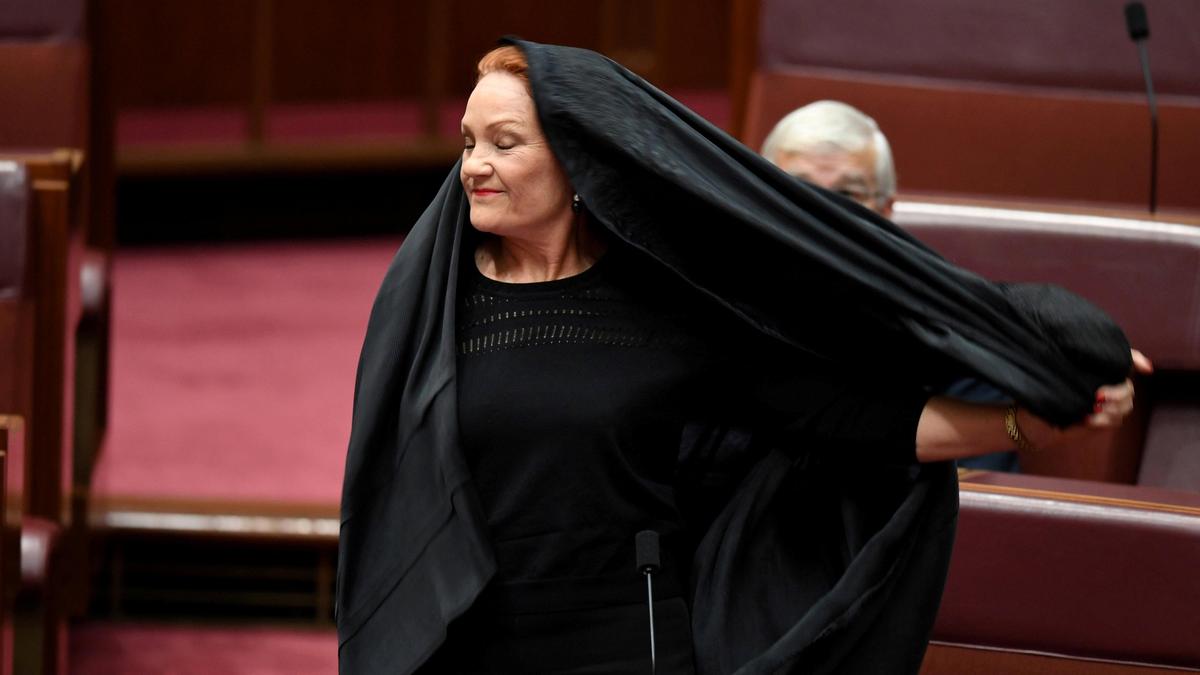Australian Senator Pauline Hanson Ignites Burqa Controversy in Parliament
Australian Senator Pauline Hanson sparked widespread outrage and ignited a fierce debate in the nation's Parliament when she appeared dramatically dressed in a burqa. This highly controversial act unfolded shortly after her legislative attempt to outlaw full-face coverings in public spaces across Australia had been officially denied.
The Context: A Bill Denied, A Statement Made
As the outspoken leader of the One Nation party, Senator Hanson's choice to don the Islamic veil was widely interpreted as a provocative political statement. Her aim was clear: to draw attention to her long-held views on national security and cultural integration. Prior to her parliamentary appearance, she had sought to introduce a Bill that would ban garments such as the burqa, citing concerns over public safety and the necessity for identification. However, this motion was ultimately rejected, setting the stage for her striking entrance.
Widespread Outrage and Divided Reactions
Senator Hanson's actions were met with immediate and strong condemnation from many, who viewed her stunt as deeply insensitive, divisive, and a blatant mockery of religious attire. Critics argued that the act was designed to demonize a minority group and further exacerbate the polarization of public discourse surrounding multiculturalism in Australia. While a segment of her support base applauded her for what they called a "bold" and "principled" stance, the overwhelming response from the mainstream political establishment, along with numerous community and religious organizations, was one of censure. They emphasized the importance of respect for diverse religious practices and warned of the potential for such high-profile gestures to fuel increased Islamophobia.
Reigniting National Debates
The incident serves as a potent reminder of the ongoing and complex debates within Australia concerning religious freedom, the nation's identity, and the acceptable boundaries of political protest, particularly within the hallowed halls of Parliament. It has undeniably reignited crucial discussions about the significant role politicians play in shaping social attitudes and the profound impact that such dramatic public gestures can have on overall community harmony and cohesion.


